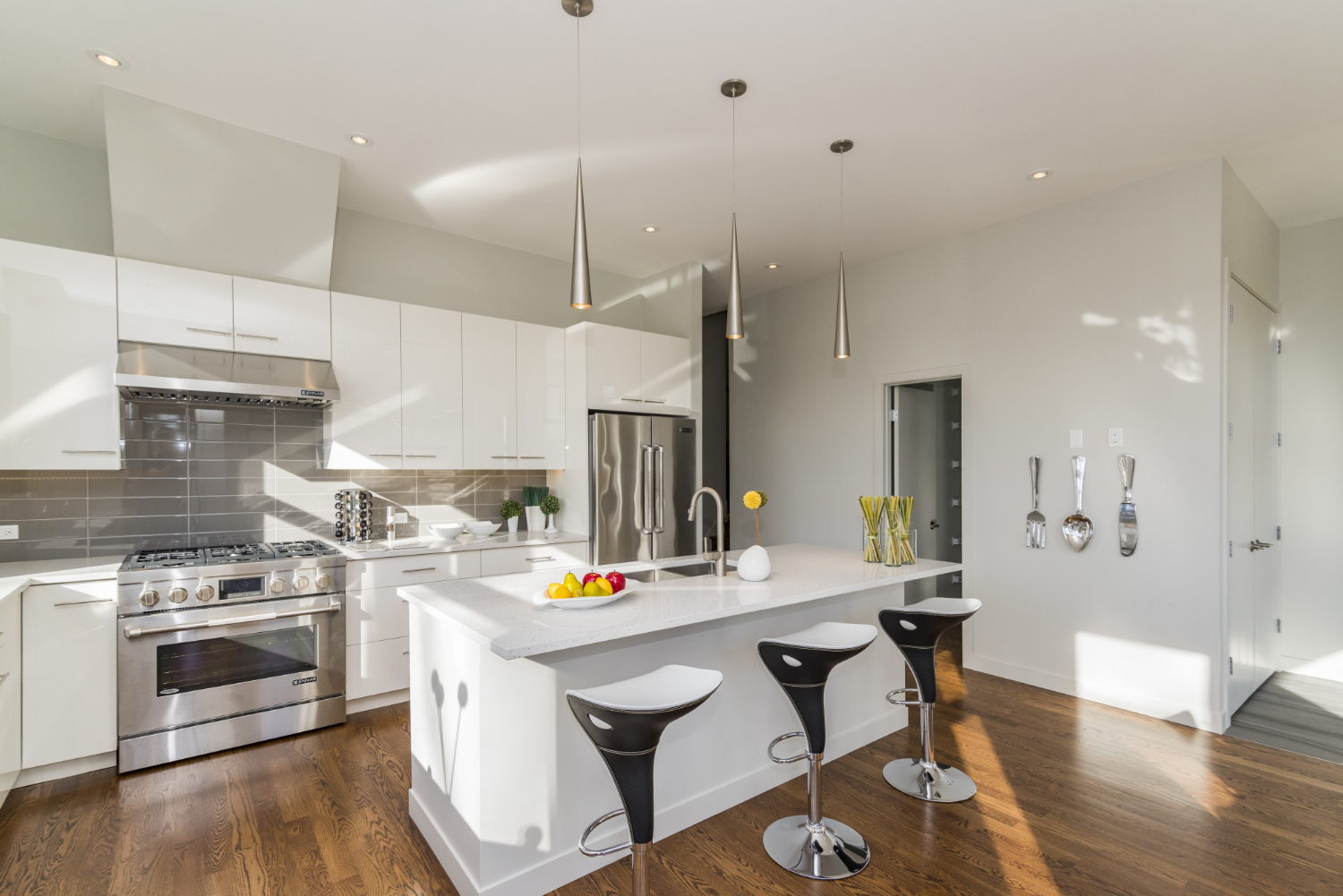The modern kitchen has come a long way, evolving from traditional cooking spaces into cutting-edge culinary hubs. In this exploration of the modern kitchen’s journey, we’ll delve into its transformation, emphasizing its shift towards eco-friendly designs and induction cooking.
The Traditional Kitchen
● Origins of Traditional Kitchens
The traditional kitchen, in the not-so-distant past, was a small, isolated space focused solely on cooking. Its design was utilitarian, featuring basic appliances and limited workspace.
● Cooking in the Past
Traditional kitchens served a singular purpose – meal preparation. These closed-off spaces were often disconnected from the rest of the house, emphasizing function over form.
The Emergence of Modern Kitchens
● The Shift to Modern Kitchens
As we entered the 20th century, kitchens started undergoing a significant transformation. Modern kitchens emerged as open, sociable spaces, breaking away from the isolation of traditional designs.
● Holistic Kitchen Design
This shift marked a departure from the exclusive focus on cooking and introduced a holistic approach to kitchen design, where the kitchen became the heart of the home.
Open Concept Kitchens
Open-concept kitchens have become increasingly popular, seamlessly connecting the kitchen to the dining and living areas. This design encourages social interaction and imparts a sense of spaciousness.
Smart Appliances and IoT Integration
Modern kitchens have witnessed the integration of smart appliances and Internet of Things (IoT) technology. These innovations have made cooking and meal preparation more efficient and convenient, thanks to remote control and automation.
Induction Cooking: A Paradigm Shift
● The Induction Cooking Revolution
Induction cooking has brought a paradigm shift to the culinary world. Employing electromagnetic technology, it heats cookware directly, offering precise temperature control and faster cooking times.
● The Benefits of Induction
This method not only enhances energy efficiency but also prioritizes safety, making it a preferred choice over traditional gas or electric stoves.
Sustainable and Eco-friendly Modern kitchen Design
● Eco-friendly Kitchen Materials
A rising trend in modern kitchens is the use of sustainable materials, energy-efficient appliances, and water-saving fixtures. These choices benefit both the environment and homeowners’ long-term budgets.
● Countertop and Surface Innovations
Modern kitchens offer a variety of countertop options, from granite to eco-friendly materials like recycled glass and bamboo. These surfaces combine durability with aesthetic appeal.
Once your Modern kitchen is built, what’s the next step?
1. Importance of Modern Kitchen Lighting
Lighting plays a pivotal role in modern kitchen design. LED lighting and task-specific fixtures are employed to create the perfect ambience, ensuring that the kitchen is not just for cooking but also for socializing.
2. The Role of Technology in Kitchen
Technology has transformed modern kitchens into highly functional spaces. Features like touchless faucets and smart appliances that suggest recipes based on available ingredients have made cooking more accessible and enjoyable.
3. Colour Schemes and Aesthetics
Modern kitchens often embrace sleek, minimalist designs with neutral color palettes. This minimalist approach enhances the sense of space and simplicity, providing an inviting atmosphere.
4. Ergonomics and Functionality
The focus on ergonomics has led to the creation of kitchens that are efficient to work in. Pull-out drawers, adjustable shelving, and ergonomic design principles are integrated for maximum functionality.
5. Promoting Decluttering
Minimalist designs promote organization and a sense of calm within the kitchen space, emphasizing a clutter-free environment.
Kitchen Islands and Multipurpose Spaces
Kitchen islands have become an integral part of modern kitchen design, evolving into versatile workspaces that serve multiple functions. These islands have transcended their traditional role as additional countertop space, taking on new significance in contemporary kitchens.
● Cooking Hub
Beyond extra counter space, kitchen islands often incorporate cooktops, sinks, and built-in ovens, making them central hubs for meal preparation. This design streamlines cooking processes and fosters a sense of togetherness, as the chef can engage with family or guests while preparing a meal.
● Dining and Socializing
Kitchen islands also serve as informal dining areas, eliminating the need for a separate dining room. Barstools or seating along one side of the island create a comfortable space for quick breakfasts, casual lunches, or socializing while cooking. It’s the perfect spot for friends and family to gather, encouraging conversation and connection.
● Storage Solutions
Many modern kitchen islands are equipped with ample storage, including drawers, cabinets, and open shelving. This storage can be used to keep pots, pans, dishes, or even cookbooks readily accessible, further enhancing the island’s functionality.
The Future of Modern Kitchen:
As technology continues to advance and sustainability becomes even more critical, the future of modern kitchens appears promising. Expect kitchens to become even more intuitive, energy-efficient, and aesthetically appealing.
Conclusion
The evolution of the modern kitchen has been a remarkable journey, from the traditional cooking spaces of the past to the eco-friendly and tech-savvy kitchens of today. The focus on sustainability, efficiency, and aesthetics has transformed the kitchen into a multifunctional and inviting hub of the home.

